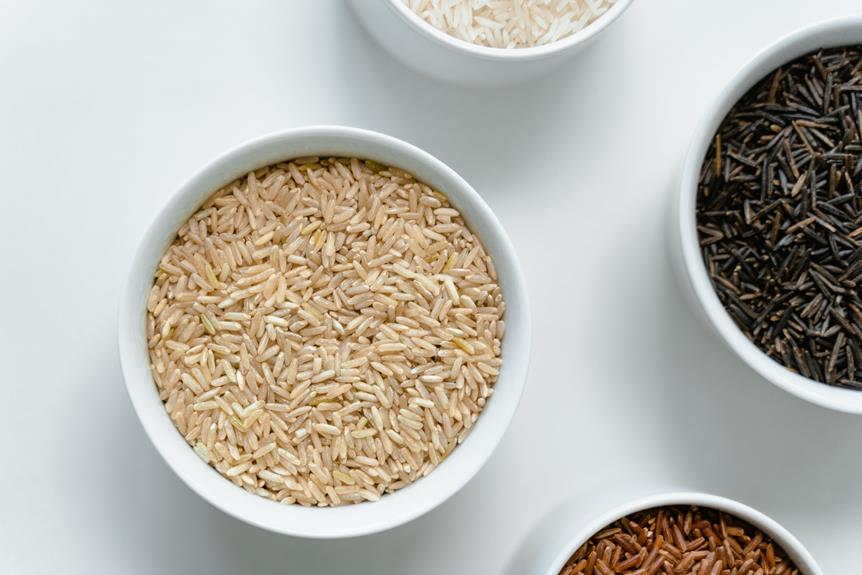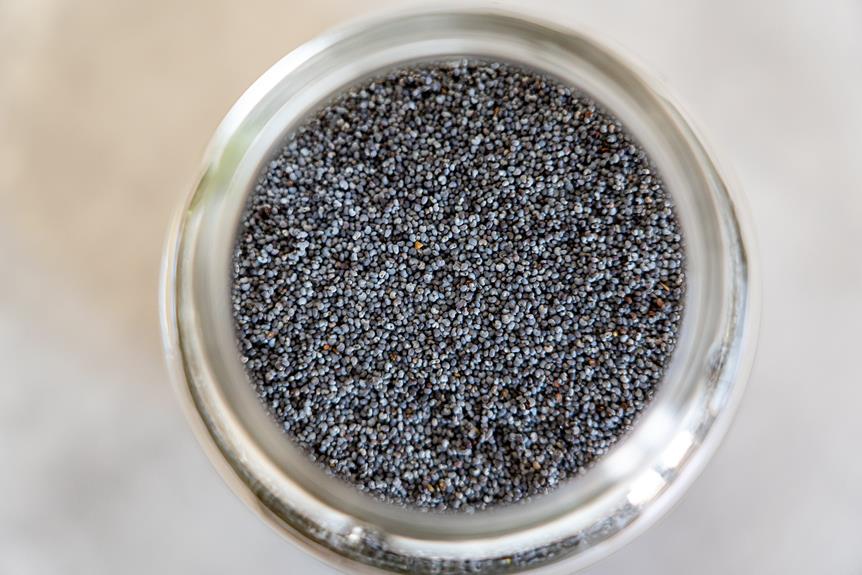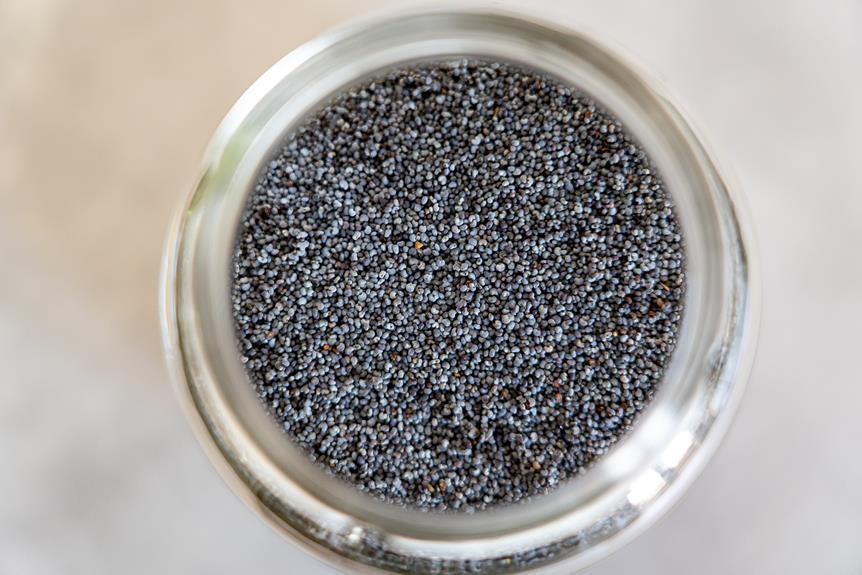Are you tired of feeling sluggish and uncomfortable due to constipation? Look no further – dietary fiber is here to save the day! But how exactly does it work? And what are the best ways to incorporate it into your diet? In this guide, we will explore the wonderful world of dietary fiber and its incredible ability to alleviate constipation. From the types of fiber to recommended daily intake, we will cover it all. So, if you're ready to say goodbye to constipation and hello to a healthier digestive system, let's dive in!
Key Takeaways
- Soluble and insoluble fiber promote regular bowel movements and prevent constipation.
- Consuming fiber-rich foods like fruits, vegetables, whole grains, and legumes can help alleviate constipation.
- Fiber adds bulk to stool, absorbs water, regulates blood sugar, and aids in weight management.
- Gradually increase fiber intake, stay hydrated, and engage in regular physical activity for better digestive health.
Types of Dietary Fiber
There are several types of dietary fiber that can help alleviate constipation. These different types of fiber can be categorized into two main groups: soluble fiber and insoluble fiber. Soluble fiber, as the name suggests, dissolves in water and forms a gel-like substance in the digestive tract. This type of fiber is found in foods such as oats, barley, beans, lentils, fruits, and vegetables. It helps soften the stool and adds bulk, making it easier to pass through the intestines.
Insoluble fiber, on the other hand, does not dissolve in water. It adds bulk to the stool and helps promote regular bowel movements. Examples of foods rich in insoluble fiber include whole grains, nuts, seeds, and the skin of fruits and vegetables. Insoluble fiber acts like a natural laxative, speeding up the passage of waste through the digestive system.
Both soluble and insoluble fiber play important roles in maintaining regular bowel movements and preventing constipation. They work together to provide the necessary bulk and softness to the stool, making it easier to pass. It is important to consume a variety of fiber-rich foods to ensure you are getting both types of fiber in your diet.
In addition to the different types of fiber, it is also important to note that the amount of fiber you consume is equally important. The recommended daily intake of fiber for adults is around 25-30 grams. However, it is recommended to gradually increase your fiber intake to allow your body to adjust and prevent any discomfort.
Role of Dietary Fiber in Digestion
To understand the role of dietary fiber in digestion, let's take a closer look at how it affects your digestive system. When you consume foods rich in dietary fiber, such as fruits, vegetables, whole grains, and legumes, it plays a crucial role in maintaining a healthy digestive system.
Firstly, dietary fiber adds bulk to your stool, which helps to promote regular bowel movements. It absorbs water in your intestines, making your stool softer and easier to pass. This helps prevent constipation and keeps your digestive system running smoothly.
In addition to promoting regular bowel movements, dietary fiber also helps to regulate your blood sugar levels. Soluble fiber, found in foods like oats, barley, and beans, forms a gel-like substance in your digestive tract. This gel slows down the digestion and absorption of carbohydrates, preventing rapid spikes in blood sugar levels. This is especially important for individuals with diabetes or those at risk of developing the condition.
Furthermore, dietary fiber acts as a prebiotic, providing nourishment for the beneficial bacteria in your gut. These bacteria help break down fiber into short-chain fatty acids, which provide energy for the cells lining your colon. This helps maintain a healthy intestinal lining and supports overall gut health.
Lastly, fiber-rich foods tend to be more filling and can help with weight management. They take longer to chew and digest, keeping you satisfied for longer periods. This can be particularly helpful for individuals trying to lose or maintain weight.
How Fiber Relieves Constipation
Consuming an adequate amount of dietary fiber can effectively alleviate constipation and promote regular bowel movements. So how exactly does fiber relieve constipation? Here are four ways:
- Adds Bulk to Stool: Fiber is indigestible and passes through the digestive system relatively intact. As it moves through the intestines, it absorbs water and adds bulk to the stool. This softens the stool, making it easier to pass and preventing constipation.
- Increases Bowel Movement Frequency: Fiber stimulates the muscles in the intestines, promoting bowel movements. It helps to regulate the contractions of the intestines, ensuring that waste is moved along efficiently. By increasing the frequency of bowel movements, fiber helps prevent constipation.
- Speeds Up Transit Time: Fiber reduces the transit time of food through the digestive system. It helps to prevent the excessive absorption of water in the colon, which can lead to dry and hard stools. By speeding up the transit time, fiber prevents constipation by keeping the stool soft and easy to pass.
- Provides Food for Beneficial Bacteria: Fiber acts as a prebiotic, providing nourishment for the beneficial bacteria in the gut. These bacteria play a crucial role in maintaining a healthy digestive system. By promoting the growth of these bacteria, fiber helps to regulate bowel movements and prevent constipation.
Incorporating fiber-rich foods into your diet, such as fruits, vegetables, whole grains, and legumes, can help alleviate constipation and promote regularity. Remember to increase your fiber intake gradually and drink plenty of water to avoid any discomfort.
Recommended Daily Fiber Intake
Are you wondering how much fiber you should be consuming daily? Well, the recommended daily fiber intake varies depending on your age and gender. It is generally recommended that adults aim for around 25-30 grams of fiber per day to maintain regularity and prevent constipation.
Fiber for Regularity
Including an adequate amount of dietary fiber in your daily intake is essential for maintaining regularity. Fiber helps to prevent and alleviate constipation by adding bulk to the stool, softening it, and making it easier to pass. Here are four reasons why you should prioritize fiber for regularity:
- Increased stool weight: Fiber absorbs water and adds bulk to your stool, promoting regular bowel movements and preventing constipation.
- Improved bowel movements: Consuming enough fiber helps to regulate the contractions of your intestines, making it easier for waste to move through your digestive system.
- Softened stool consistency: Fiber adds moisture to your stool, making it softer and easier to pass without straining.
- Enhanced gut health: Fiber acts as a prebiotic, nourishing the beneficial bacteria in your gut and promoting a healthy digestive system.
Fiber-Rich Food Choices
Looking for fiber-rich food choices to meet your recommended daily intake? Including a variety of high-fiber foods in your diet can help alleviate constipation and promote regularity. Aim to consume around 25-30 grams of fiber each day, as recommended by the American Dietetic Association. Whole grains, such as brown rice, quinoa, and whole wheat bread, are excellent sources of fiber. Fruits like apples, pears, and berries, as well as vegetables like broccoli, carrots, and Brussels sprouts, are also rich in fiber. Legumes like beans, lentils, and chickpeas are another great option. Additionally, incorporating nuts and seeds, such as almonds, chia seeds, and flaxseeds, into your diet can boost your fiber intake. Remember to drink plenty of water when increasing your fiber consumption to prevent any potential digestive issues.
High-Fiber Foods for Constipation Relief
To relieve constipation, incorporate high-fiber foods into your diet. These foods can help add bulk to your stool, making it easier to pass through your digestive system. Here are four high-fiber food options that can provide constipation relief:
- Fruits: Include fruits like apples, pears, and berries in your diet. These fruits are rich in fiber and can help promote bowel movements. Eat them with their skin on for maximum fiber intake.
- Vegetables: Add vegetables such as broccoli, Brussels sprouts, and spinach to your meals. These vegetables are not only packed with fiber but also contain essential vitamins and minerals that contribute to overall digestive health.
- Whole grains: Opt for whole grain options like whole wheat bread, brown rice, and oatmeal. These foods are high in fiber and can help soften your stool, making it easier to pass.
- Legumes: Incorporate legumes like lentils, chickpeas, and black beans into your diet. These protein-packed foods are an excellent source of fiber and can aid in relieving constipation.
Incorporating Fiber Into Your Diet
To incorporate more fiber into your diet and promote regular bowel movements, consider these simple dietary adjustments. Start by choosing whole grains instead of refined grains. Opt for whole wheat bread, brown rice, and whole grain pasta instead of their white counterparts. These whole grains are rich in fiber and can help soften the stool, making it easier to pass.
Another way to increase your fiber intake is by consuming more fruits and vegetables. Fruits like apples, pears, and berries are excellent sources of fiber. You can enjoy them as a snack or add them to your breakfast cereal or yogurt. Vegetables such as broccoli, carrots, and Brussels sprouts are also high in fiber and can be easily incorporated into your meals. Try adding them to stir-fries, salads, or soups.
Legumes, such as lentils, chickpeas, and kidney beans, are another great source of fiber. They can be used in a variety of dishes, including stews, curries, and salads. You can also swap out meat for legumes in certain recipes to increase your fiber intake.
Additionally, nuts and seeds are excellent sources of fiber. Snack on almonds, walnuts, or sunflower seeds for a quick and easy fiber boost. You can also sprinkle chia seeds or flaxseeds on top of your meals or blend them into smoothies.
Lastly, make sure to drink plenty of water throughout the day. Fiber absorbs water and helps add bulk to the stool, making it easier to pass. Aim for at least eight glasses of water per day to keep your digestive system functioning properly.
Potential Side Effects of Increased Fiber Intake
Increased fiber intake may lead to potential side effects that can affect your digestive system. While fiber is generally beneficial for your health, it is important to be aware of these possible side effects. Here are four potential side effects to watch out for:
- Gas and bloating: When you increase your fiber intake too quickly, it can cause excessive gas and bloating. This is because fiber is not fully digested in the small intestine and instead moves into the large intestine where it is broken down by bacteria. This fermentation process can produce gas, leading to discomfort and bloating.
- Abdominal cramps: Some individuals may experience abdominal cramps when consuming large amounts of fiber. This can be due to the stretching of the intestinal wall as fiber adds bulk to the stool. It is important to gradually increase your fiber intake to allow your body to adjust and minimize the risk of cramping.
- Diarrhea: Consuming excessive amounts of fiber, especially soluble fiber, without adequate fluid intake can result in loose stools or even diarrhea. Soluble fiber absorbs water and forms a gel-like substance, which can promote bowel movements. However, if you do not drink enough water, this can lead to diarrhea.
- Constipation: Ironically, while fiber is often recommended to alleviate constipation, a sudden increase in fiber intake without enough fluids can actually worsen constipation. Insufficient hydration can cause the fiber to become compacted and difficult to pass through the digestive system, leading to constipation.
To minimize these potential side effects, it is important to gradually increase your fiber intake, drink plenty of water throughout the day, and listen to your body's cues. If you experience persistent or severe side effects, it is best to consult with a healthcare professional.
Other Lifestyle Changes for Better Digestive Health
To improve your digestive health, there are several other lifestyle changes you can make in addition to managing your fiber intake. These changes can help alleviate constipation and promote regular bowel movements. First and foremost, it is crucial to stay hydrated. Drinking enough water throughout the day helps soften the stool, making it easier to pass. Aim to drink at least eight glasses of water daily and increase your intake when exercising or in hot weather.
Regular physical activity is also important for maintaining a healthy digestive system. Engaging in regular exercise, such as walking, jogging, or swimming, can help stimulate the muscles in your intestines and promote bowel movements. Aim for at least 30 minutes of moderate exercise most days of the week.
Another lifestyle change that can greatly benefit your digestive health is managing stress. Stress has been linked to various digestive problems, including constipation. Find healthy ways to cope with stress, such as practicing relaxation techniques like deep breathing exercises, meditation, or yoga. Engaging in hobbies or activities you enjoy can also help reduce stress levels.
Additionally, it is important to establish a regular bowel routine. Try to go to the bathroom at the same time every day, preferably after a meal. Sit on the toilet for a few minutes, even if you don't feel the urge to go, as this can help train your body to have regular bowel movements.
Lastly, avoid holding in bowel movements. When you feel the urge to go, find a restroom as soon as possible. Holding in stool can lead to constipation and other digestive issues.
Frequently Asked Questions
Can Dietary Fiber Cause Constipation?
Dietary fiber can actually help alleviate constipation. It adds bulk to your stool and helps it move through your digestive system more easily. Fiber also absorbs water, which makes your stool softer and easier to pass. So, rather than causing constipation, fiber can help prevent it. It's important to include enough fiber in your diet by eating foods like fruits, vegetables, whole grains, and legumes to maintain regular bowel movements.
Is There a Difference Between Soluble and Insoluble Fiber?
Yes, there is a difference between soluble and insoluble fiber. Soluble fiber dissolves in water and forms a gel-like substance that helps soften stools. It can be found in foods like oats, fruits, and legumes. Insoluble fiber, on the other hand, adds bulk to the stools and helps them move through the digestive system. It can be found in foods like whole grains, vegetables, and nuts. Both types of fiber are important for maintaining regular bowel movements and alleviating constipation.
Can Fiber Supplements Be Used for Constipation Relief?
Yes, fiber supplements can be used for constipation relief. They provide an easy and convenient way to increase your daily fiber intake. Soluble fiber supplements, such as psyllium husk, can absorb water and soften your stool, making it easier to pass. Insoluble fiber supplements, like wheat bran, can add bulk to your stool, promoting regular bowel movements. However, it's important to follow the recommended dosage and drink plenty of water when taking fiber supplements to avoid potential side effects.
Are There Any Foods That Should Be Avoided When Increasing Fiber Intake?
When increasing your fiber intake, there are certain foods you should avoid. These include processed snacks, sugary drinks, and white bread. These foods are low in fiber and can actually contribute to constipation. Instead, opt for whole grain products, fruits, vegetables, and legumes. These foods are high in fiber and can help alleviate constipation by adding bulk to your stool and improving bowel movements. Remember to drink plenty of water as well to help the fiber do its job effectively.
Can Increasing Fiber Intake Lead to Weight Loss?
Increasing your fiber intake can indeed lead to weight loss. Fiber-rich foods, such as fruits, vegetables, and whole grains, can help you feel fuller for longer periods of time, reducing the need for excessive snacking or overeating. Additionally, fiber adds bulk to your diet without adding many calories, making it a great option for weight management. Just remember to increase your fiber intake gradually and drink plenty of water to prevent any digestive discomfort.




